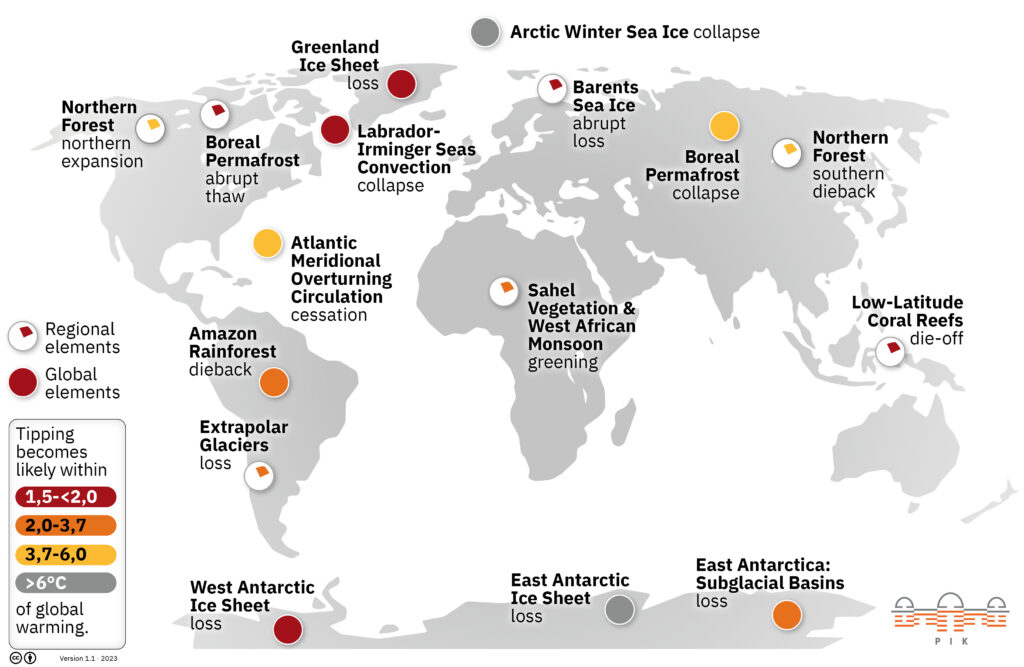
Introduction
Climate tipping points are critical thresholds in the Earth’s climate system, beyond which dramatic and often irreversible changes occur. These tipping points hold significant implications for the environment and human societies. With the ongoing climate crisis, understanding and addressing these tipping points has never been more crucial for policymakers, scientists, and citizens worldwide.
Key Climate Tipping Points
Recent scientific research has identified several potential climate tipping points. Notable among them are the melting of the Greenland and Antarctic ice sheets, which could lead to significant sea-level rise, and the collapse of the Amazon rainforest, which plays a crucial role in global carbon absorption. Furthermore, the thawing of permafrost has the potential to release large amounts of methane, a potent greenhouse gas, exacerbating climate change.
Recent Developments
The Intergovernmental Panel on Climate Change (IPCC) has warned that if global warming exceeds 1.5 degrees Celsius above pre-industrial levels, we risk crossing several tipping points. A recent report highlights how every fraction of a degree matters; even immediate global reductions in greenhouse gas emissions are critical to limit temperature rise and avoid these dangerous thresholds. Governments and organizations are increasingly taking action, with commitments to achieve net-zero emissions by mid-century and investments into renewable energy technologies.
Consequences of Ignoring Tipping Points
Failure to heed the warnings surrounding climate tipping points could have dire consequences. If these critical thresholds are crossed, it could lead to catastrophic climate effects, including extreme weather events, habitat destruction, and widespread species extinction. Such changes pose significant risks to food security, human health, and economic stability, especially in vulnerable communities around the globe.
Conclusion
The notion of climate tipping points underscores the urgency of acting against climate change. For readers, it is vital to stay informed and engaged in climate issues at local, national, and global levels. While the challenges may seem daunting, technological advancements and policy shifts toward sustainability provide hope for mitigating climate change. Future actions must prioritize preventing these tipping points to ensure a stable and habitable planet for generations to come.



